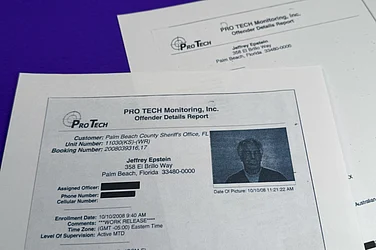John Lee, formerly the city's No. 2 official, revealed his 44-page manifesto Friday, vowing to strengthen governance, increase public housing supply, boost the city's competitiveness and build an inclusive society focused on upward mobility. Lee said he would “fulfill the constitutional responsibility of legislation” under Article 23 of Hong Kong's mini-constitution, the Basic Law, as part of improving governance. Article 23 stipulates that the city shall enact its laws to prohibit “any act of treason, secession, sedition, subversion against the Central People's Government," and “theft of state secrets.”
Hong Kong attempted to enact such laws in 2003, but it faced resistance from residents. Plans to implement such a security law were shelved following massive protests. In 2020, the city implemented a national security law imposed by Beijing after months of anti-government demonstrations in 2019. Lee, 64, is Beijing's only endorsed candidate for the elections and is widely expected to win during the polls on May 8. He resigned as chief secretary for administration earlier in April to run for the elections. Before becoming a government official, Lee spent most of his career in the police force and is known for his tough stance against protesters during the 2019 anti-government demonstrations.
He pledged to boost the city's competitiveness and set a firm foundation for Hong Kong's development, dismissing concerns that growing numbers of residents were leaving the town and draining it of talent. “Hong Kong has experienced mobility of people over its history, especially in the last 25 years. This is a thing that we have been living with and coming across regularly,” he said. He acknowledged that people who sought to leave the city were likely doing so in response to Hong Kong's COVID-19 restrictions and measures. Hong Kong has strict COVID-19 criteria in place, including flight bans for airlines that import multiple passengers who test positive for the virus and a mandatory quarantine for most incoming travelers.
“COVID-19 will pass no matter what. It's a matter of time,” he said. “In the long term, it is how we make people realize the attractiveness and the competitiveness and the beauty of Hong Kong as a place they should come to work, to live and to develop.” He described Hong Kong as a place where people can “make money” and said that the city remained an essential gateway to the Greater Bay Area and the mainland Chinese market. “These are the strengths that will not be replaced by any cities in China or any countries globally,” said Lee.
Lee also said he would provide more land and housing for residents by streamlining procedures. Hong Kong is one of the most expensive real estate markets globally, and a lack of affordable housing is a concern for the younger generation. “We will do so more quickly, efficiently, and in greater quantity,” Lee said.
Lee secured 786 nominations to run for the elections on May 8, well over 50% of the 1,454-member Election Committee that will select the next chief executive. He will become the next chief executive if he receives an absolute majority of the votes during the election. The new Hong Kong leader will take office on July 1.


























